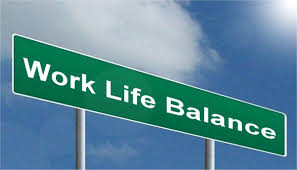September 25th, 2015
More Work Hours, More Strokes?
Andrew Ip, MD

Andrew Ip, MD, is a 2015-16 Chief Resident in Internal Medicine at Emory University in Atlanta, Georgia.
Do doctors work too much? Residents would probably say “Yes! I’m burnt out,” and supplement it with some form of “I’d much rather work less.” Outside of residency, the answer may be a mix of yes, no, and maybe.
Recently, Lancet published a meta-analysis on work hours and its effect on incident coronary disease and stroke. The study showed that those who worked more than 55 hours weekly on average had an increased relative risk of 33% for stroke and 13% for coronary disease. Stroke risk increased linearly as average work hours rose. NEJM Journal Watch’s Dr. Bruce Soloway reviewed this article; his comment is below:
 “Mechanisms for an association between long working hours and incident CHD and stroke are unknown but might include prolonged or repetitive stress, physical inactivity, and excess alcohol consumption. Average working hours vary widely among developed countries and represent modifiable social decisions. Social policies encouraging or requiring people to work longer hours could have substantial health implications.”
“Mechanisms for an association between long working hours and incident CHD and stroke are unknown but might include prolonged or repetitive stress, physical inactivity, and excess alcohol consumption. Average working hours vary widely among developed countries and represent modifiable social decisions. Social policies encouraging or requiring people to work longer hours could have substantial health implications.”
These results must sit in the consciousness of nearly all residents, regardless of specialty, as our average work hours usually are greater than 50 and often average greater than 60 or 70 hours on a busy inpatient month. At our residency program, we realize a personal work/life balance is key, given our rigorous clinical demands. Wellness initiatives at Emory this year include more happy hours, a research mentorship program, Fitbit competitions, and food at conferences. Even as residents graduate, attending/fellowship life does not get any less stressful, although work hours usually are fewer. But how do we prevent burn out? After all, we are a primarily service-oriented occupation that often requires selfless sacrifice in the name of greater good for patients’ well-being.
One solution might be a Stanford ER program that relies on the concept of ‘time-banking’ to save physicians from burning out (Washington Post article). This $250,000 2-year pilot rewarded ER attendings who spent extra time at work mentoring residents, covering shifts for colleagues, or spending time on committees. The extra ‘banked’ time resulted in benefits such as grant-writing help, dry cleaning pick-up, or even food deliveries to home. The result was astonishing, as most physicians improved their work-life balance and job satisfaction and, importantly, wrote more grant proposals (22 were submitted, with an above average 40% success rate for a whopping $10 million in support). The latter alone is a compelling reason to fund these types of time-bank pilots elsewhere, as they can very quickly pay for themselves. A second reason is that the culture within this emergency department became more collegial and friendly — many attendings volunteered to cover coworkers’ shifts as they realized their service would not go unappreciated because of the time-bank system.
This innovative method to avoid burn-out and improve work-life balance may be a way to address the stress that can contribute to excess strokes, especially because work hours will not go below 55 anytime soon for residents or attendings. Physician-wellness curriculums are also key to teach physicians how to cope with stress or manage their time effectively. My own personal tip to is to not lose whatever defines you as you go through medical training — for me this included playing basketball or Frisbee, talking to loved ones, and attending church whenever possible.
I would love to hear any other social-wellness initiatives that were successful for you personally or within your residency!
-Andrew



While I appreciate all the little treats and perks that I get from my GME department, I don’t think this does a whole lot to help with work/life balance. My residency has as great a resident wellness program and infrastructure as one could ask for. This might improve residents’ approval rating of the program, but it does nothing to address the amount of hours I am in the hospital away from the rest of my life. I’m not convinced duty hour changes have really improved anyone’s life too much. Our shifts might be shorter on paper, but no substantial change in patient load; feels like I just have more to do in a shorter time.
I don’t quite see how the Stanford experiment improves work/life balance at all. It seems to maybe improve job satisfaction, collegiality, and publications. By your description it seems like people would actually be working more hours, volunteering to cover more shifts, etc.
I strongly believe with the literature stating that the more patients a trainee sees in the residency, the better equipped they become. I’d like to see an experiment or trial of extending IM residency to 4 years but decrease the work hours to 40-50 hrs per week. This could be an optional track possibly. We have a married pair of interns with a newborn who are splitting a single intern spot and doing two years of internship. Sounds nice to me, they also get to raise a baby and spend 6 months with it each. Maybe I’m in the minority that I’d rather train for longer but have more of a life. Besides the pay and the hours, I love residency, but I’d love it a lot more if I didn’t constantly feel like I’m putting everything else on hold